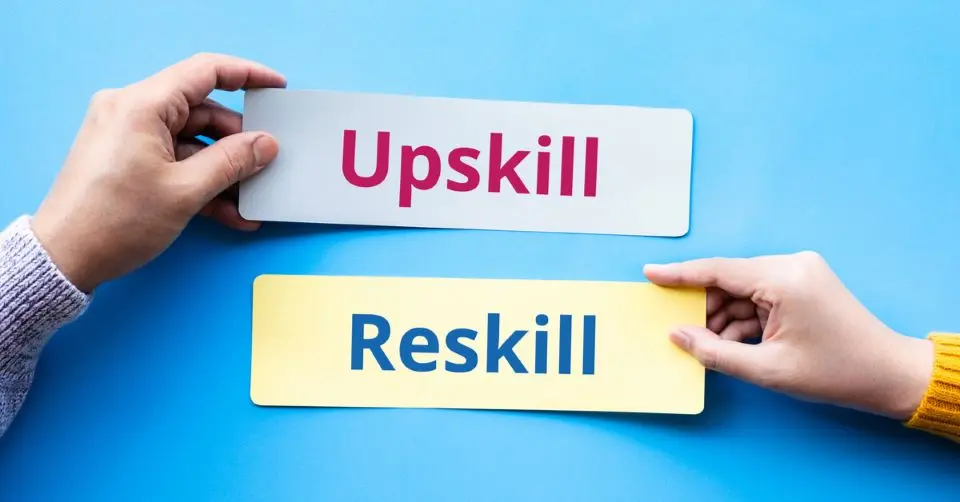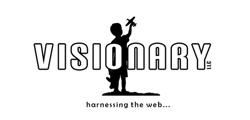The post The job market is always changing. Much technical work will be needed, as workers must stay updated with their skills to remain competitive. Upskilling and reskilling are two methods to do this. But how are they different from one another?
Upskilling is improving in the area you are already working. It’s sort of like getting promoted at work. Reskilling means gaining entirely new skills for a different type of work. While upskilling and reskilling can lead to new job opportunities, the best option depends on your aspirations and circumstances.
People looking to advance in their careers often opt for up-skilling. Reskilling may be more appealing for people hoping to change careers. Either way, career development is the investment that pays off over time.” And so, learning new things prepares workers for those changes.
Understanding Upskilling and Reskilling
Upskilling and reskilling are key strategies for career growth in today’s fast-changing job market. These approaches help workers stay current and adapt to new roles.
Defining the Concepts
Upskilling means improving existing skills for your current job. It’s about getting better at what you already do. For example, a marketer might learn new social media tools.
Reskilling involves learning new skills for a different job. It’s about changing careers or taking on a new role. A factory worker might learn coding to become a web developer.
Both methods help workers stay valuable in their jobs. They can lead to better pay and more job options.
Benefits for Career Growth
There are several benefits of upskilling and reskilling for your career. They can increase your confidence and make you more hirable.
Upskilling is about doing your job better. It opens the door to promotions and pay raises. You become far more valuable to your company.
Reskilling opens the door to new careers. It allows you to pivot careers if your job becomes obsolete. This means you have increased job security. Both approaches demonstrate to employers that you’re willing to learn. This helps distinguish you when applying for jobs.
The Role of AI in Learning
AI is changing how we learn new skills. It makes upskilling and reskilling easier and more personal.
AI can suggest courses based on your skills and goals. It adapts to how you learn best. This makes learning faster and more fun.
Online platforms use AI to offer targeted lessons. You can learn at your own pace, anytime and anywhere.
AI also helps track your progress. It can show you where to focus your efforts. This makes learning more efficient.
As AI grows, it will offer even more ways to upskill and reskill. This will help workers keep up with changing job needs.
Implementing Learning Strategies for Career Advancement
Effective learning strategies are key to career growth. They help professionals gain new skills and knowledge to stay competitive in the job market.
Recognizing Personal and Industry Needs
Then the first step is to know what skills to learn. Search job posts in your field to notice trends. Discuss emerging technologies with colleagues and mentors.
Consider your career aspirations. Looking to get a promotion in your current job? Or switch to a new field? This will steer you in the right direction towards what you want to learn.
Industry reports can indicate skills that are in high demand. LinkedIn and similar sites frequently release data about important skills associated with various occupations. Use these to identify skill gaps you can address.
Deciding How to Learn
Now that you know what to learn, choose the best way to learn it. But it is a popular and flexible way, as online classes. Sites like LinkedIn Learning have plenty of courses.
For certain skills, certification can enhance your resume. Seek recognized certifications in your industry. They often necessitate study and a test.
And do not overlook hands-on learning. Take on new initiatives at work. This allows you to practice skills in real scenarios.
Mentorship programs can be useful, too. Having mentors to help guide those learnings and give you real-life insider knowledge in the industry.
Reskilling Transition
Reskilling is about learning completely different skills for a career shift. It is time-consuming and labor-intensive but can lead to job openings.
Begin by educating yourself about that new field. What are the required skills and qualifications? Check out job descriptions to visualize it.
Take an entry-level course in the new field. This can help determine whether it’s the path for you.
Networking is key when you are changing careers. Network with professional organizations in your target industry. Go to events to meet people and hear about openings.





















